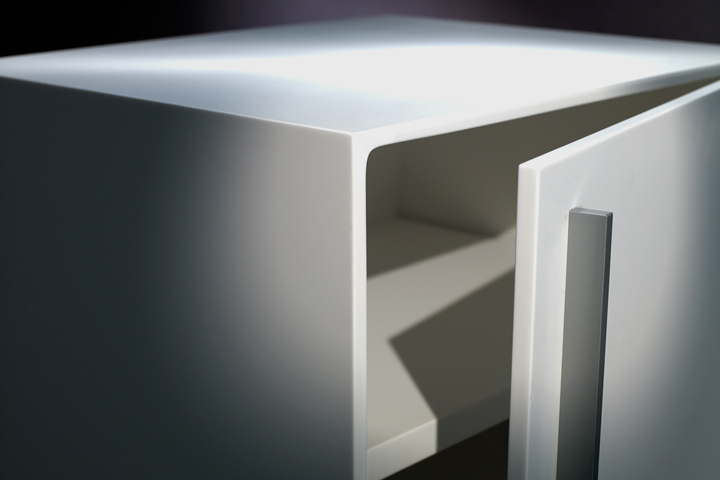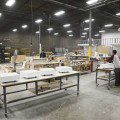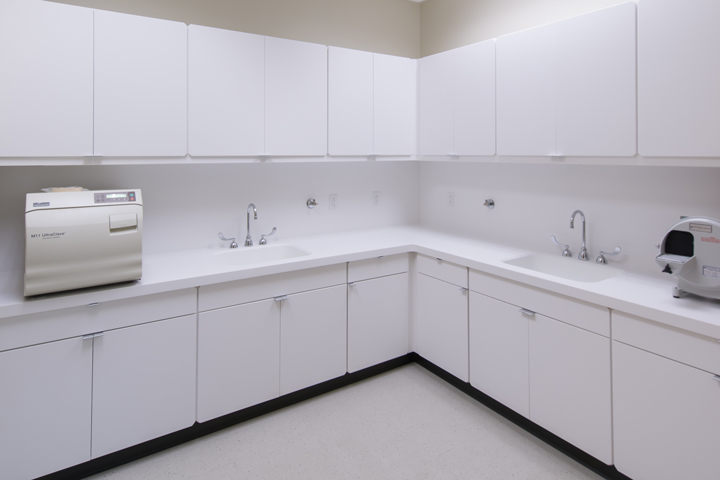Increase your casework ROI with long-term thinking
An interesting article was recently published in Healthcare Finance News that talks about how designing hospitals with sustainable materials and a proper workflow in mind leads to better ROI, or return on investment. This is highly applicable to hospitals furniture, especially casework. By thinking about the long term, as well as the short term, you can increase your casework ROI.
Being mindful, as natural as it seems, is becoming the “behavior of the future.” Mindful eating, mindful selling, mindful designing, etc., are a positive trend. It only makes sense that we should continually strive to improve based on things that matter to us as individuals and as a society.
After many years of over-consumption of cheap and poor quality products, it seems that the new focus will be to make decisions with different parameters in mind. We challenge that the shift is towards thinking long-term and not short-term. How will a short-term, short-sighted decision affect a project in its future? At Shield, we embrace long-term thinking, the kind that considers the lifetime of a product, the ROI for the facility and the benefit to the end user.
Choosing the right product
Due to lower upfront costs, many healthcare facilities are currently being designed with cheaper materials that can be easily damaged. They are on a tight budget and can’t afford what might, in fact, save them money in the long run. For instance, solid surface is a nonporous material and helps to prevent the spread of bacteria. It is safe and sanitary, but culturally, the norm for healthcare casework goes to plastic laminate or stainless steel (in high-risk areas).
We believe there’s reason to think this will change. A customer recently told us about how it took a cultural change to switch from plastic laminate to solid surface for countertops and according to him, it will be the same way for casework. Solid surface casework “makes sense,” he told us. It was long-term thinking, however, that eventually encouraged the shift and allowed him to increase his ROI.
Facility ROI
In terms of a return on investment, why will investing in more sustainable and durable materials cost less over the long term? Because it will last longer than other materials. Solid surface might have a higher upfront cost, but it will last as long as the hospital stands. Plastic laminate on the other hand, needs repaired about every five years.
After 20 years, the upfront and maintenance costs combined may equal or exceed the overall cost of solid surface. And after 20 years, it is time to completely replace laminate casework. By comparison, solid surface has a lifetime warranty and after many years of use, it can still look brand new.
Cost of ownership adds value to the ROI of a product. The cost of ownership for plastic laminate is far higher than that of solid surface. It’s not hard to see how a change in attitudes is coming, one that shifts towardore sustainable, safer and more sanitary environments. Embracing such change will allow you to increase your casework ROI, too.
Increased safety
Furthermore, high-risk areas such as the surgical room, recovery room and ICU are not the only areas representing a danger of infection for the patient. According to the infection control nurse at Shawnee Mission Medical Center in Kansas, a little-known high-risk area is the patient room itself.
The article we previously mentioned explains that fighting against infection is the reason why rooms are only designed for one person. Yet plastic laminate remains the first choice material in patient rooms. Stainless steel is sometimes viewed as “too cold,” so the industry has adopted a material that is porous and damages very easily because it presents a lower upfront cost in more hospitality-centered areas. Once damaged, laminate poses a risk to patients of infection and a risk of contamination to hospital staff.
Consider the decisions you’ve made recently in your facility. Would you consider yourself a short-term thinker or a long-term planner? Hopefully, you’ve seen how long-term thinking will benefit you in relation to casework and life in general. Thinking about the future allows you to increase your casework ROI as well as ROI in general.









Sorry, the comment form is closed at this time.